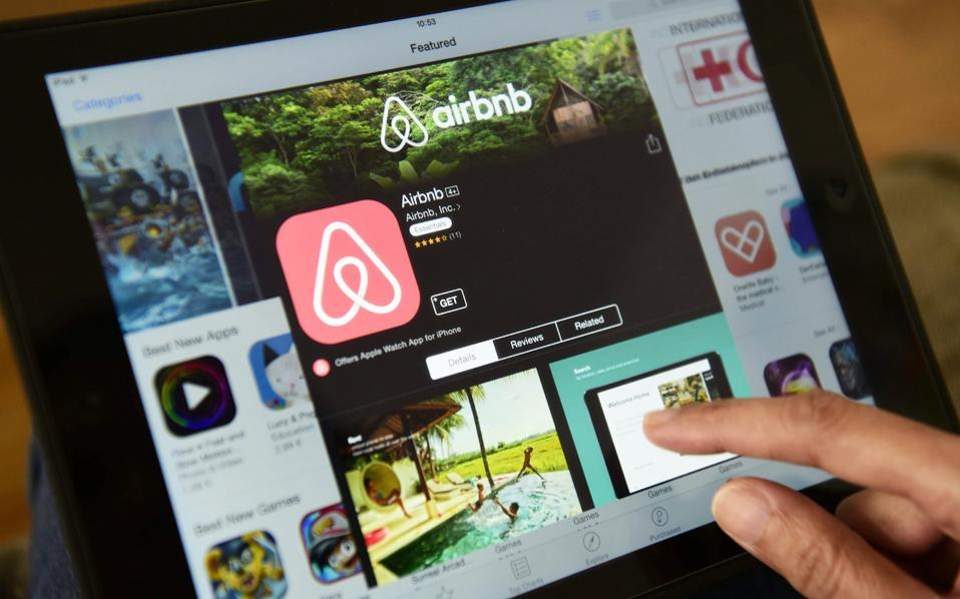An empowering innovation which enables ordinary people to capitalize on the tourism dollar in a dignified manner, is how many Jamaicans view California-based online booking platform AirBnb.
AirBnb enables homeowners and experience providers to list, and travellers to discover and book accommodations around the world. The number of listings for Airbnb Accommodations and Experiences is increasing in Jamaica as the company spreads its wings across the island.
Figures from the Ministry of Tourism indicate that 55,000 tourists booked accommodations via Airbnb, up from 35,000 in 2016.
For Edward Wray of Montego Bay’s Rasta Village, which was among the first Jamaican attractions to be listed on the AirBnb Experiences platform, it is the accommodation side of AirBnb, in particular, which scores highly. The Rastafarian, who also co-operates an AirBnb-listed dwelling in Bogue Hills, said the platform is also a plus for retirees, who have extra spaces at home, as it provides another pension source.
“Payment is secure. They pay fast… The people book and the money is sure. There is a steady flow of persons especially during the winter tourist season. Many of them are in Bogue. All over Montego Bay people are doing it,” he explained.
It is not only homeowners, but also route taxi drivers, market vendors and small shop owners who benefit. Wray said backpackers tend to book with Airbnb and oftentimes stay for extended periods where they readily undertake volunteer work and build long-lasting relationships.
“The effect, we see it on the taxi-man. You have now this kind of pickup service that has to be done and is not JUTA people doing it. You explain that it is the red plates that they should take… You find that the people trusting more in the local transportation system. These backpackers travel with route-taxi money,” he said.
“They want to go market immediately. As they come, a Charles Gordon Market they want reach. It is like how tourism was back in the early days. It is bringing back a trust, in fact I don’t think the trust was ever lost but offering the possibility for these people with a lower budget to still ‘full-joy’ more of Jamaica than the people in the hotels. These people are people travelling specifically for the small man,” he added.
A 2017 study, titled “Advancing Sustainable Tourism Through Home Sharing”, which was conducted by strategy consulting and research firm Elevate Strategies, noted that growth in AirBnb listings outside city limits is outpacing its growth within cities. It said rural communities are increasingly partnering with AirBnb to help with revitalization, with more than US$1 billion earned by rural hosts in a select set of countries in 2016 and that “up to 97 per cent of the price of listings is retained by the hosts”.
In explaining the AirBnb mode of operation, the study said after hosts have listed their homes or experiences on the Airbnb website, guests are able to view and learn about the offerings and make reservations. Following acceptance by the host, Airbnb securely handles the exchange of money during the payment phase. Guests and hosts can then communicate through Airbnb’s platform, including arranging to check into the reserved home or meet for the booked Experience.
Safety-wise, Airbnb uses technology to assess reservations ahead of time for risk. All hosts and guests are screened against regulatory, terrorist, and sanctions watch lists, and background checks are conducted on US users. In addition, Airbnb does not release payment to a host until the guest is safely checked in.
In December 2016, the Ministry of Tourism signed a Memorandum of Understanding with Airbnb to, among other things, safeguard Jamaican Airbnb hosts and establish hosting standards and best practices. At the time, Tourism Minister Edmund Bartlett urged traditional tourism players to embrace and not fear AirBnb which he described as a ‘boon to community tourism’. It is a notion with which Edward Wray agrees.
“I think AirBnb is attractive to everybody, because even the man who just wants an adventure, it is not money that is his problem… I think it is specific the grass-root market. It is not a trickle-down. The people come specifically for that,” Wray said.
“A backpacker, with a budget of US$25 per night, US$20 for food, that’s US $45. Ten days and US$450 and they can see the whole place (Jamaica),” he added.
Past president of the Hanover Chamber of Commerce and operator of Positive Tourism, Theo Chambers, attributed the rise of AirBnb in Jamaica, largely to the myriad of residents from the Diaspora who have either resettled or built second homes in Jamaica. The momentum, he predicts, will increase.
“We have a lot of returning residents from London and Canada especially, who came back home and decided to build big homes that are not entirely occupied. These are beautiful homes in locations with breathtaking views. And Airbnb now is affording them opportunities to generate income and have guests in their homes,” he explained.
Chambers said Airbnb provides ample opportunities for Jamaican expatriates who are contemplating investing in their homeland. According to him, Airbnb is “community tourism at its best”.
“Many members in the Diaspora who really want to invest in Jamaica could invest in beautiful homes… Any John Doe can now take their home, rent it out to help themselves, to pay bills and generate a steady income. Because of the fact that the name Jamaica is so powerful, it will continue to be the number one Caribbean destination for Airbnb,” Chambers said.
“There are many individuals who do not want to stay in a hotel; they want to participate in the community. They prefer the ambience of a home; to develop relationships, so Airbnb is the best alternative for that type of demand. That money generated, stays in Jamaica, versus some of the all-inclusive properties where the money is being deposited overseas. It is a great investment. It will be here to stay,” he said.


